Today, I have the pleasure of having Kris Jones back on this show. Kris is at the intersection of AI, SEO, local marketing, personal development, mission-driven marketing, and life purpose. And those are exactly the topics we’ll be talking about in this episode. Kris has been a serial entrepreneur, author, investor, and good friend for over a decade.
His books include Search Engine Optimization All in One for Dummies and Search Engine Optimization Visual Blueprint. He has sold over 100,000 books. Kris founded the affiliate network PepperJam, which he sold to eBay. He is an OG in the affiliate marketing space. Kris is also the founder and CEO of LSEO.
He’s been featured in Inc., Forbes, Fast Company, and Amex Open, among others. I encourage you to listen all the way to the end. It gets really profound and beautiful, and I don’t want you to miss it. And now, on with the show!
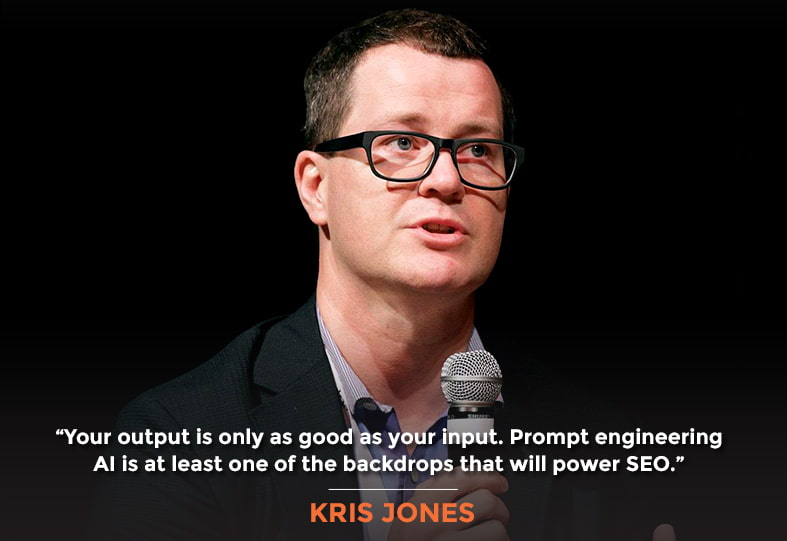
In This Episode
- [02:54] Stephan welcomes Kris Jones. Kris discusses his journey as an entrepreneur and investor and his founding of lseo.com.
- [06:21] Kris expresses his excitement about building AI technology, particularly in SEO. He discusses his focus on DIY SEO AI.
- [14:40] Kris advocates for AI as a valuable tool for content creation, emphasizing the need for specificity and editorial processes to ensure high-quality output.
- [18:57] Kris highlights the importance of avoiding non-human language in AI content by setting parameters for content length and ensuring the inclusion of target keywords for SEO.
- [23:48] Kris believes in AI as a practical tool for local businesses, emphasizing its accessibility and potential for basic SEO functions.
- [30:56] Kris agrees with Peter Diamandis about AI’s transformative impact on businesses. He shares his perspective on pursuing impact over financial gain.
- [37:29] Kris describes his passion for mentoring and coaching and the importance of investing in personal development to achieve success.
Kris, it’s so great to have you on the show.
Thanks, man. It’s great to be back. Did you catch the year that had to be good, like five or ten years ago?
Oh, the year of your interview was 2016, if you can believe it.
Wow, eight years ago. I know; I’m super stoked to be here. We’ve known each other for—we didn’t talk about this before we went live, but it’s got to be 15 or 20 years because I recall; correct me if I’m wrong, but was it through Jeremy Shoemaker at one of his events, or did we meet elsewhere?
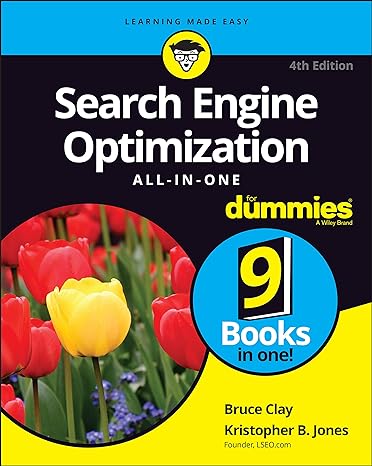
It was probably at Jeremy’s Elite Retreat. Yep. It might have been even earlier, but certainly, we would have spoken at an Elite Retreat. Yep.
We would then identify when that was to know how far it goes. But it was at least 15 or 20 years.
Yeah, it probably would have been 2010, 2009, or something like that. Yeah, maybe 2011.
Yeah. What was the name of your original agency?
Netconcepts. When I sold in 2010, they canceled the trademark and didn’t end up using the name. They gave me the domain, Netconcepts.com, back. And I sat on it for ten years, not updating the website at all. And then I realized, like, that’s a shame. This name actually has really good value. And so I resurrected it. And so now my agency isn’t just Stephan Spencer; it’s Netconcepts again. And that’s awesome.
That is awesome.
Yeah. So let’s talk about your storied background and SEO and starting up all these different companies and selling some of them. Some didn’t end up working out, but many did give us a bit of a background.
AI is a great tool, and one of its best use cases is in content creation. Share on XSo, this is my 26th year in growth marketing. I got to it by starting a family business while in graduate school at Villanova University outside of Philadelphia. It was a company we called Pepperjam. It was based on a product my grandmother made for us. I say us, my brother my sister, and I when we were kids and started out building the website, learning HTML. Once I built the website, I was like, “I got to generate traffic,” and I just self-taught on search engine optimization.
I stumbled upon the affiliate marketing industry, which set sail on this 20-plus-year career. Pepperjam would go on to become one of the bigger agencies and later affiliate networks. And as you noted, I sold that in 2009. In 2010, I started an investment fund called KBJ Capital. And I don’t know, I’ve lost track. I’ve made 40 to 50 investments. So, over that period, which was about twelve to 14 years of investing, I’ve had a really incredible opportunity.

I currently work with, and I’ve worked with, celebrities and professional athletes to try to create a bridge, if you will, between Hollywood and sort of Silicon Valley or tech, if you will. I’ve also developed some thought leadership skills, and I’ve been speaking at quite a number of tech shows in North America. So fast forward to today. You already mentioned that I’ve written some books and published some articles. In 2019, I made one of the boldest moves of my entire career. I bought the corner block of the downtown city where I work and turned it into a growth stage accelerator for my investment company. I have legal, accounting, and marketing support for the tenants in my building. And I go in every day.
In some cases, we’re just talking. In other cases, I’m helping them solve problems. And so here I am today. By the way, one of the fifth floors of the building is an agency that I founded in 2014 called lseo.com. It was the continuation of my passion for building and scaling businesses through search engine optimization, paid ads, and affiliate marketing.
Yeah. And you’re still running LSEO, right? You’re the CEO.
I am, and we’re in our 10th year. The interesting thing is that for the previous nine years, I’ve been more of a strategist, more of an investor, kind of advisor than an operator. And this year, I came back in as an operator. And the short of it is that when I founded LSEO in 2014, I actually founded it as a technology company. I was trying to solve do-it-yourself SEO for small businesses.

However, because of my success as an investor, I spread myself thinly across different businesses. So, I hired someone to operate the company, and he had more of a preference for marketing services and agency life, so I just supported him. He was very successful in building that company, leveraging my brand and my background, as well as his team. But now I’m back in the saddle because I founded LSEO in the first place, and that’s to build technology. It’s a passion of mine. And so we’re working on a bunch of stuff, particularly in the AI space, that we can chat about.
That’s awesome. So, what are you most excited about that you’re building right now?
The repository of knowledge that AI provides us access to through a prompt is extraordinary, and humans aren't really capable of storing so much information, so we shouldn't necessarily be afraid of it. Share on XWhat’s interesting is that we’re building in the AI space. I acquired the domain DIYSEO.AI and spoke about SEO recently at the Pubcon event held in Las Vegas. And up to this point, the industry is so nascent, at least as it relates to the consumer application of AI. And so I only really feel like I’ve been engaging with AI on a daily basis for a little over a year.
So, while we are active, we’re actively building technology in the AI space. I truly don’t know what is going to end up being the killer feature or the killer solution. It’s so nascent. There are so many companies competing for people’s AI dollars. And so I don’t know. But I’m in a fortunate position to be able to speculate and build MVPs, put them in front of users, and get feedback. That’s how I’ve been successful at building technology in the past: really getting feedback from users and doing that.
So, what is DIY SEO? What’s the value proposition for that?
To be honest with you, the thing that I think separates good AI from bad AI is summed up by this sense. Your output is only as good as your input. So one of the things I’ve learned in playing with AI every day for hours, for over a year, is that prompting and prompt engineering and understanding the AI’s flaws through prompting, more effective prompting is at least one of the layers, the backdrop, if you will, that will power DIYSEO.AI. Take that for what it is. We’ve been testing different prompts and looking at the output, how that output ranks on Google, how people engage with it, and thinking through how to leverage AI in general to enhance content. And I could share in a second why I feel that’s important.
Many inexperienced AI users do not know how to control the commands and the output they can get.
But we’d be looking for the instances where AI makes the most sense for a do-it-yourself, and then we would enhance that experience for them by helping to drive efficiency or facilitate that process. So instead of it being just a chatbot, where it’s a blank page, a blank screen, and then it’s up to them to be able to walk the AI through what it is that they want, the outputs that they want, we want to facilitate that, we want to do that as effectively, we want to get that out into the market as soon as possible, just solely because there’s so much competition. But at the same time, we want the product to answer your question and solve a problem. I think the problem is that many inexperienced users do not know how to control the commands and the output they can get. So, content creation is certainly a primary use case for SEO.
Most recently, some of the updates that Google has made suggest that the content that’s being created with AI needs to be as good or better than a human could do. And I fundamentally believe that humans are very disadvantaged, at least as it relates to certain types of content, just to hold the repository of knowledge that an LLM can versus a human once there’s an understanding of that, right? So, content’s the primary thing. We want to make it as simple as possible for people to create really good SEO content that Google will like and rank. But when you go through that process, there are things like keyword discovery, creating a content calendar, and creating or enhancing your website structure.
One of the things that occurred to me was just how limited we were before AI based on resources. There weren’t enough resources to build that content team that almost every business across America wanted to build because it took time. And so, with the efficiency of accessing all of that information and putting it together in the form of content, I think content creation is the main use case. There are a lot of other less important features that are nice to have, but I think being able to create an engine that spits out SEO content that Google’s okay with is a big deal.
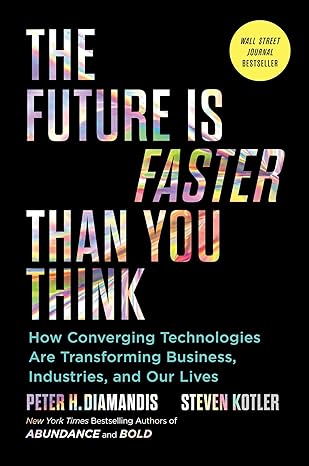
Yeah, speaking of which, Google made some announcements recently about how AI content is not okay. What’s your take on that? And what should our listeners do to utilize AI in a way that doesn’t go against Google guidelines but also adds value to the user and their SEO?
The SEO community is still trying to figure out exactly what Google was attempting to slap or remove. In almost all instances, it seems like it was a really egregious use, scaled use, if you will, of AI without the sort of necessary editing and humanization and usefulness approach to the content. It reminds me a little bit of what happened with demand media, which I’m sure you remember. They did like eHow and a bunch of other content sites, call it a decade ago, and they built a billion-plus dollar company. And I’ll share this here.
When they went public, I got called by an investment banking firm, and they asked me if I would go under retainer and advise them. I didn’t know what it was. I went under NDA with them, and it was on-demand media. They were speculating whether or not the investment was just too risky because of Google’s potential algorithm changes. So, I made money on that because I knew I was going to have to do some research and provide them with examples. My advice to that investment banking firm was that the approach that demand media was taking was highly likely, at some point, to be judged unfavorably by Google. My understanding is that when they reached back out, they said I was right because they went public and then down.
For your users, or for not your users, but for your listeners and folks watching, my position is that AI is a great tool. I believe one of its best use cases, as we’ve already discussed, is in content creation ideation. Ideation is a big part of writing content, coming up with topics, articles, and that kind of thing. So, I believe that one of the primary reasons to use it is because it’s a great tool and will drive efficiency into your process.
AI is a great tool for ideating content creation.
Then, the other thing I would say is that the more specific you could be with the AI about what it is that you want to write, the greater the likelihood that the output will be what Google will deem favorable. And then, finally, once they leverage AI as a tool to write content, make sure that there is an editorial process, too. I’m using the word humanize, but certainly ‘”demachinize” if that’s a word. Some of the output you get from AI is because while AI has an unlimited repository of knowledge, it’s a machine, and it sort of hiccups or hallucinates. And for a whole ton of reasons, you don’t want that footprint left on any content that you publish on your website.
Yeah. So, what’s an example of a campaign or cornerstone content piece that was generated mostly, or maybe solely with AI, that you’re able to speak of? Maybe you’re under NDA and can’t talk about many of them, but something you can?
Yeah, I will. So, it’s a client in the healthcare space. What they do is provide nursing access to remote nurses to help people with chronic care management. We used AI as a tool to build a page on their website called The Ultimate Guide to CCM or Chronic Care Management because, at the end of the day, that’s their primary service. So, we debated whether or not we targeted the homepage or whether or not we created and targeted this guide.
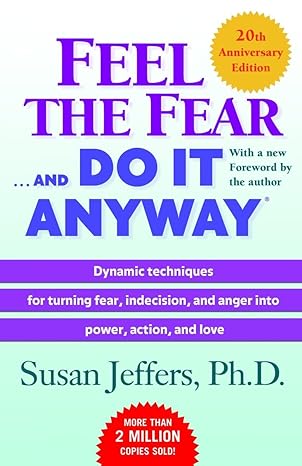
The guide is somewhere between 3000-5000 words of content, but we used it in pieces to identify and create executive summaries and then later full pieces of content on each of the applications of CCM. So, chronic care management for healthcare providers and chronic care management for patients are these kinds of things. It was a project that took about a month, not full-time, but from it, we produced the ultimate guide. We haven’t published all of them yet, but we produced 30 supporting pieces of what I call artery content. These all point back to the back-core ultimate guide. This client, who had already certainly not super competitive, is now competing on page one for these keywords.
The reason I gave that example is that we did not use AI to write that entire guide. I mean, we took information from different sources, and it was this thoughtful but hodgepodge of different information that we were able to put into a piece of content that would have taken me, “Oh boy, I don’t even know.” I mean, the amount of resources and the cost to the client, maybe it costs the client a couple thousand dollars. If I were to just think about it as a billable time with the AI assistant, without it, it probably could have been $30 to $50,000. So, it is a pretty unbelievable use case of how, in this case, an agency could work with its client collaboratively, leveraging AI to drive efficiency into the process of content construction.
In terms of the footprints that I referenced earlier, we owned the content through that process and provided proper editorials, and human beings looking at it were experts. And so far, we’re getting really great results. But that’s not the short approach that I think Google to the point you made about the updates they made recently; I don’t believe that Google’s trying to stop me or my agency from doing what we did. They’re trying to stop the person who purchased a tool that allowed them to produce 1000 pieces of content, and they publish it on a domain that they just acquired to publish on. It’s not too difficult when you do things that way candidly, to make mistakes and to leave a trace such that Google could, through their machine learning, quickly identify that this is not normal behavior.
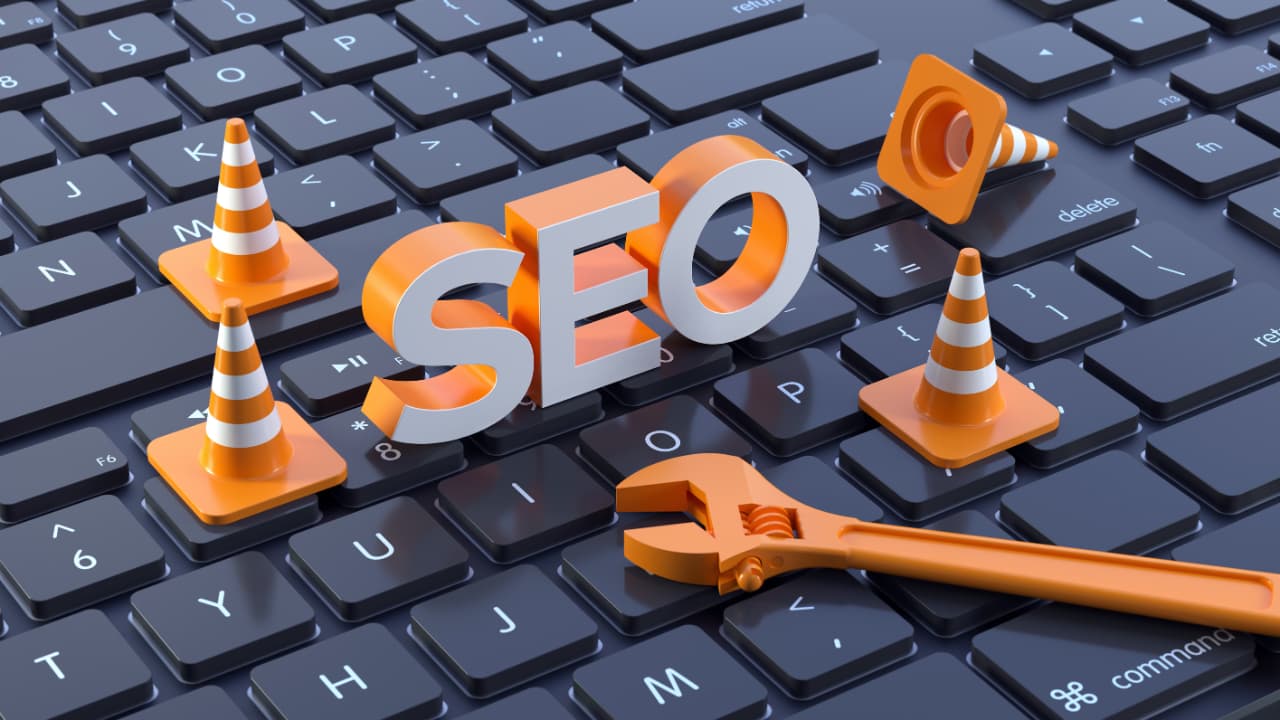
So, what are some of the footprints you’ve seen in AI-generated content that won’t pass Google’s sniff test?
So this is because we don’t know this, but people often refer to the sort of “dehuman” or nonhuman introductions and conclusions for whatever reason; they like to use words that anyone would say, “Wow, good job, good use of whatever.” Nothing came to my head when I thought the people watching this were like, “Oh, what about this word or that word?” So they know what words I mean. Then, there are long run-ons in terms of conclusions.
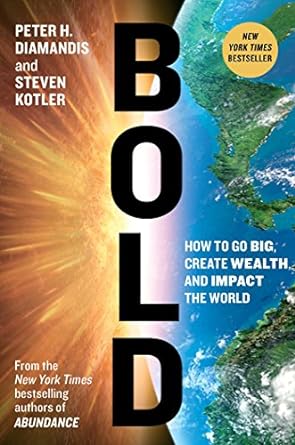
In AI, what needs to be avoided and you have to be very careful about is when you ask AI to write something, not giving it parameters for length. Another tip would be if a piece of content you’re looking to create is over, I would say 750 words. I’d encourage you to prompt a request for AI to write an outline, and in that outline, ask them to estimate the word count per section. The nice thing about that as your output is that you could review the outline and modify it if you wanted to; you could add to it if you wanted to. And if you decide not to do either of those things, at least you have control over the output, not being a long hallucination run-on. What I would do once you have the outline is depend on the length of the content. I wouldn’t ask for an output of more than 500 to 750 words. Make sure it’s tight. Make sure that the sections use the type of language or keywords.
Actually, it is another important part of writing good SEO content, but it is also important to make sure that the target keywords for that page are in some of the subheadings and whatnot. So some of it’s obvious, some of it isn’t to me. I think other people probably have a better eye for it than I do. I’m a writer. I’m not really an editor. You know, when I wrote the books that you mentioned earlier, it was so interesting. And so, for anyone who hasn’t written a book, you’ll get all the credit once it’s published. But there’s a huge team, depending on whether you write for a major publisher like Stephan wrote for O’Reilly and I’ve written for Wiley. These publishers give you a team of editors, including copy and picture editors. So my point there, though, is that if someone is going to think about publishing a book, I think it’s important to know that you’re going to have a lot of support in doing it.
You know, I was curious to know which phrases and words tend to get overused by generative AI, so I turned to Google for that and got words like delve, unlock, and ensure. For example, AI enables us to delve into complex data patterns, unlock valuable customer insights, and ensure that marketing strategies are both highly targeted and optimally effective. That sounds like AI.
As an entrepreneur, building successful businesses involves utilizing practical tools and anything that drives efficiency within your team. Share on XNo, but I kind of write like that. But that, I think, was my point. Then, the editors, I think I do write pretty robotically. I went to law school, too. If there is one takeaway, one skill that is really taught in law school, it’s to be concise, period. That’s it. Because if you don’t, you’re not going to do well on any of the essays anyway. So, I’ve learned how to be a writer, but the truth is, I probably am not. I benefit from having the editorial team make sure that my content doesn’t read like a robot wrote it.
Yeah, yeah, for sure. So, we need to be very aware of the Google algorithm that is doing AI detection to see if we’re using an AI to write our content. Certain phrases and words will be overused or end up getting into the contents that are not typical if they’re written by a human. So, for example, overuse of those words that I gave earlier, but also phrases like: can lead to, remember the key, this could involve, here are several- those are other phrases that generative AI, such as ChatGPT, tend to overuse. Interesting times. Tony Robbins has this great saying where he says, “It’s not that we’re trying to get rid of our problems. We’re trying to have higher quality problems. This is a high-quality problem.”
It definitely is. And sometimes I think when there’s a headline, there’s a tendency to try to think how it applies to you or the work that you’re doing. I think that’s fine, but then you sort of have to step back and say you’ve already mentioned it earlier when we were chatting about quality. What is it that Google really wants? Do they really want to detect the difference between AI content and content written by a really poor writer or a great writer? Or is it what they really want to make sure? Is that the content, the answers, the questions, and the queries that are typed into the search engine present the most relevant and useful results to the user? And it’s easy.
I see a lot of people in our community, in the SEO community, kind of picking sides, almost like our political climate these days. You got to be this or that. And if you’re this or that, you better be the most extreme version of this or that. Similarly, some SEOs think AI is terrible for the SEO space. I’m not on that side. I’m more of an entrepreneur than I am an SEO. I do love SEO. I love the idea of thinking through how to help my clients rank higher on Google. But the truth is, I see it more as a very practical tool. Anything that drives efficiency into the process to me is.
The repository of knowledge that AI provides us access to through a prompt is extraordinary.
As an entrepreneur, that’s how you build successful businesses. At the same time, you have to know the risk of if you gamble, you go, and you have a strict rule of $250, and that’s within your means. If you stay within that, you’re probably going to be fine. I don’t know, that’s your personal choice. But if you do the extreme of that, where 250 is like your means and you’re taking cash advances, it’s probably not going to be a great outcome. So it’s a tool.
The people who are really trying to abuse it are the ones I believe Google will identify. I don’t want people to feel fear of using AI to create content. I believe that the repository of knowledge that AI provides us access to through a prompt is extraordinary. Humans aren’t really capable of storing so much information, so we shouldn’t necessarily be afraid that somehow it’s going to put us in the doghouse with Google. I think we should be using it; everyone should be using it to drive efficiency into their business and never lower their standards. Make sure that you’re putting out content that is consistent with answering the queries that people are typing into Google.
How is AI going to change, or is it already changing local marketing for the mom-and-pop, the local dry cleaner, and the plumber?
It’s a great question. So, if you’re a landlord and always put your agreements on napkins, AI is a great tool for legal documents. Just recently, I actually didn’t have to use AI, but I was going to use it as a solution. Turns out that by default, WordPress provides you with a template privacy policy. But the truth is you could whip up a privacy policy fairly quickly. Again, remember, your output is only as good as your input, so make sure that when you prompt AI, you’re clear and specific about what it’s going to be used for. That kind of thing.
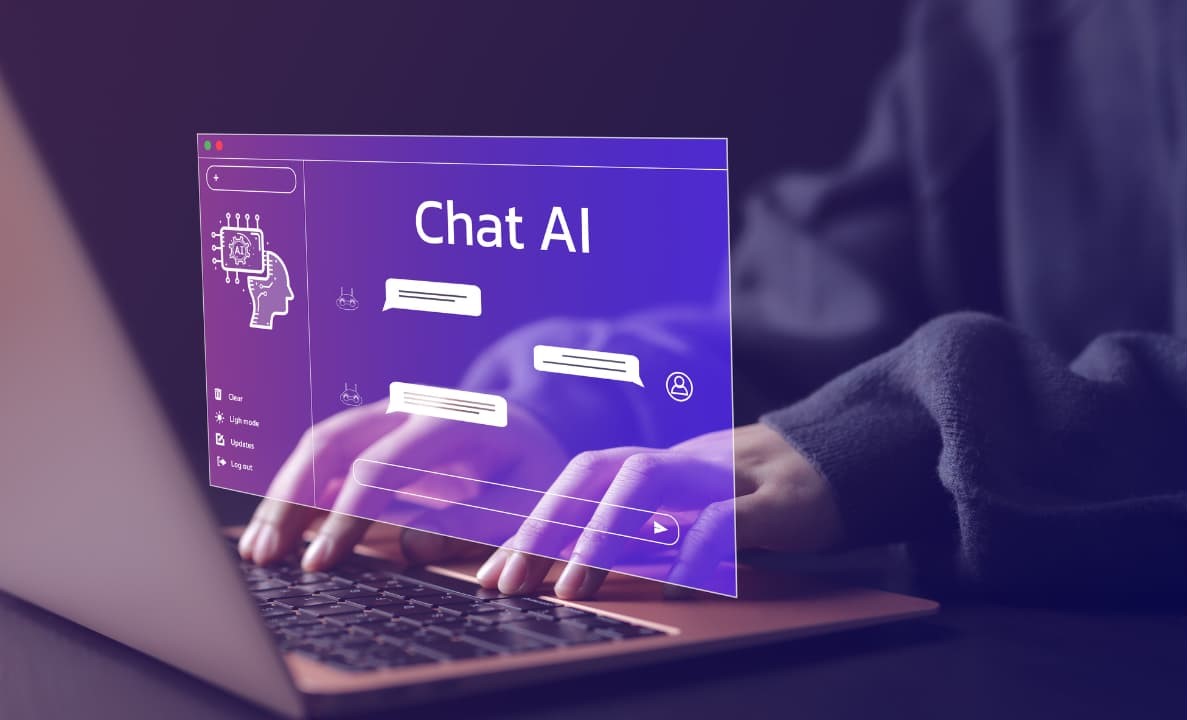
Since I’m building the DIYSEO.AI site, I’m just a big believer that it could be used for most of the basic SEO functions. I was just talking about pricing yesterday. This is a tool that’s going to probably be as low as $25 a month, and maybe it could go up to an enterprise level if necessary. But the examples that I was giving earlier about some of the things that we want to do with our technology could be done through proper prompting and planning by all of the folks that you just mentioned, the local plumbers, the local, and I believe that a lot of them are using it. I feel like there has never been such quick adoption in our lifetime, which to me feels has gone beyond just the techies, geeks, or nerds. It’s an accessible tool for anyone. So I actually think they are using it, but hopefully, they’re not afraid of it, and they shouldn’t be afraid of it. It’s a tool.
What do you think of Peter Diamandis‘ quote? Peter Diamandis, founder of Abundance 360 and author of Bold and The Future Is Faster Than You Think, is faster than we think. He said that by the end of this decade, there will be two kinds of businesses: businesses that are using AI at their core and businesses that are out of business.
By the end of this decade, there will be two kinds of businesses: businesses that use AI at their core and businesses that are out of business. -Peter Diamandis
I saw Peter speak at one of the Tony shows years ago and have followed him since. He’s unbelievable. He’s behind, like the XPRIZE and stuff like that, right?
Yeah, he was the founder of the XPRIZE.
Yeah, I mean, he’s looking at just the practicality of it being a tool to the point I was making earlier just on the brainpower if you will, the capacity to store so much knowledge and retrieve it in more of a language model than a query result type of output is profound. I think that your question also relates to how search changes and how Google changes over the next five to ten years. But I actually agree with Peter. I stood on the sidelines for a bunch of tech industries. That’s just my subjective opinion. I kind of stayed on the sidelines of VR. I stayed on the sidelines. And this is obvious. I have not aged well in this one, but I stayed on the sidelines of crypto. I know it’s like, “Oh, God, Kris just lost all of his credibility.”
Hold on. I owned, like, I think about it, a decent amount because I just think it’s so funny. I owned 25 bitcoin, which at the time was worth $25,000, and the damn thing went up to $50,000 within 90 days back in the day, and pigs get slaughtered. So I sold it that same bitcoin. I didn’t need the money. I just sold it because I thought it would be stupid not to sell it. That would be worth millions of dollars. But you know what? I’ve had times and opportunities to make lots of money. My increase in happiness, among other things, at best, was flat to incrementally up or down.
So, I’m not fishing for money. I’m fishing for impact and opportunities just to be part of the conversation. I try to help people think through things, and that’s what we’re doing. So, yeah, I agree with Peter. There’s no doubt that this is the biggest thing in tech that will universally elevate the productivity of people and businesses globally.
I’m not fishing for money. I’m fishing for impact and opportunities to be part of the conversation.
Yep, it’s going to be an interesting time to be alive, for sure. All right, so let’s talk about this whole mission, fishing for impact sort of thing, and your quest to improve yourself and study personal development, spirituality, etc. I’m curious to hear, first of all, what are some of the most impactful books, courses, seminars, and speakers that you want to highlight for our listeners?
We should schedule two hours for this one. I know that the output would be pretty incredible. I grew up a single mom with a very low income and government assistance. But I grew up with a mom who was an amazing role model and who really instilled in me that I could be anybody when I was 14. So, my mom had a huge impact on me. She was my self-fulfilling prophecy to the person that I’ve become. But when I was a teenager, I think I was an early mature. My mom got sick. It was a pretty rough childhood and teenage years, at least as it relates to some of the things that were happening in my life at that age. So at 14, a friend, one of my best friends, Brian Drew, and his dad, doctor Drew, a dentist from here in northeastern Pennsylvania, walked into the bedroom. One summer, we were off on break, and he told Brian and me that he was holding Tony Robbins’s Personal Power, which I think was on cassette because I was 14 years old. And so this is 30-plus years ago, but I think it was cassettes. But anyway, he said, you guys should really check this out. It’s made a really big difference in my life. So, I would later ask Brian if I could take those tapes home.
I’ve reflected on this so many times. I’ve told this story. I gave a commencement address at my undergraduate alma mater, Penn State, and I told the whole story of how it all went down. But I took the tapes home, and I’m not going to pretend that every single one of them seemed to just stick with me. It seemed over my head in some respects, but it seems so right. It seems so purposeful. And the one thing that Tony said is that you have everything that you need within you right now to take the first step towards whatever it is that you want, wherever it is that you want to go. And I just rewind it and listened to it. And as in the subsequent tapes, it seemed like all of his teachings were around this idea that all of us, as humans, have this sort of untapped potential, this extraordinary potential to achieve, to contribute, et cetera. And so that’s it. From age 14 on, personal and professional development became a huge part of my identity.
You have everything you need within you right now to take the first step towards whatever you want, wherever it is that you want to go. – Tony Robbins
So, throughout my undergraduate years, I was a super high achiever simply because I demonstrated to myself exactly what Tony taught me: we all have this incredible personal power. That would lead to so many recognitions and experiences, and if you will, material success would come. And I would marry the woman of my dreams, have three amazing kids, live in a beautiful home, own successful businesses, and write books. And it was crazy that those initial sparks led me on this journey. So many books. When I was a teenager, I read a book called The Celestine Prophecy by James Redfield. I still think that that is one of the most impactful books a teenager could read.
A lot of people will spend their entire lives never really having a connection to something greater than themselves. And I felt like that book at least opened my mind to this universality of energy and the reality around coincidences. And when these things happen, and what happens if you create self-awareness around them or pursue them, it could change your life dramatically. So, the self-esteem prophecy was huge. Martin Seligman is a psychologist from the University of Pennsylvania. In the early eighties, when I went to Penn State in Villanova, I studied psychology before I went to law school. So, I have always really been interested in psychology. Martin Seldman is a psychologist from the University of Pennsylvania in the early eighties. He was the president of the American Psychological Association. He would later kind of be like a pioneer, the founding father of positive psychology, which really came out of humanistic psychology. And there’s just so much good content out there on positive psychology by Seligman, some of his disciples, and some of his peers.
The other sort of impact that came into my life was going to personal development shows and conferences. The one that I believe I’ve been to 14 or 15 times at this point is Tony Robbins. Again, Unleash the Power, Life Mastery, Wealth Mastery, Business Mastery, Date with Destiny. He had a few other little shows here and there, but what I’ll say is that I know people that follow, you know, that this has been a big part of your career, and you’ve branched out into so many different areas. But what I’ll say to someone who’s never been to one of those types of shows is that that event could be what ultimately wakes up within you, this potential that I was referring to earlier or helps you reflect on, or helps you through a tough time or through things happen right. To all of us. And how we deal with them dramatically impacts who we become. So Tony is, I actually think going to a live show when you’re going through something tough is probably some good advice, although there’s a lot of different ways of going about that.
I just think it’s so cool to let other people know that there is something brilliant within them. There’s a talent that they have that’s extraordinary, that’s breathtaking. Part of my success has allowed me to have these conversations with kids, both high school kids and college kids.
There’s an organization here, and I believe it’s national, but it’s called Junior Achievement. They create these opportunities for kids to role-play what it would be like to be a banker, an investment banker, an entrepreneur, or whatever. And a lot of the books that I’ve read and the events that I’ve gone to and the work that I’ve done on personal and professional development sort of come out in me when I’m standing in front of these kids and it just feels so aligned and so purposeful when I’m doing that. A lot of my career has been spent in mentoring and coaching, and really, I mean, just to be honest, trying to bring the best out and giving people support so that they have the best crack at success. I mean, I think at the end of the day, if there is a universal sort of commonality among all people, it is that we’re driven to improve.
We’re driven to live a life where we put in more effort today than yesterday.
We’re driven to live a life where we feel like we’re putting a little bit more into today than we did yesterday, and we’re improving in some way. If you don’t grow, you die. So that’s a ramble. I mean, you could see behind me here I’m actually working from my home office. It’s like saying to a parent with six kids, you don’t want to start complaining about your three kids because they’re going to say, “Oh, I’ve read a lot of books.” Part of this personal and professional development journey is reading at least one to two monthly books. And that’s not a lot. I know there are people that my wife consumes two books in a week, and I’m just like the types of books that I read often. I’m writing in them, margins, and stuff. There are just so many books.
Well, that’s awesome. Good for you for being so motivated to improve yourself and for knowing that we all stand on the shoulders of giants. So, trying to figure this out on your own is a lot harder than just picking up some books, going to some seminars, and learning from others who have already figured some things out.
Yeah, I mean, at the end of the day, you can become anybody that you would like to, or you’d like to if you’d like to improve yourself; it’s been done, and it could be done again. But it’s not so much being a judge of people who are moving faster than others, but just being around people. One of the things I learned about going to events is being around people who just want to live life to the fullest and want to always improve. So it’s one of those things that you and I, for sure, have connected on for many, many years. I remember. Had to be a long time ago, 15 years ago. I was at one of the Tony shows, and I looked across the room, and there you were, sitting up in the front row, which you did for many years, you know.
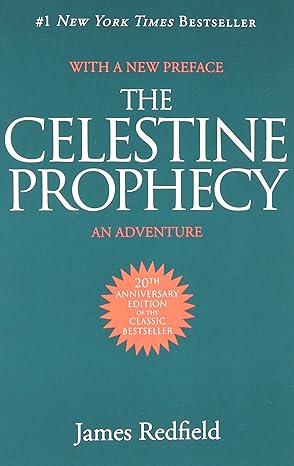
Yep. Yeah, I did the platinum partnership thing. But of course, there’s more than just Tony Robbins. Like I said, we stand on the shoulders of giants. So they’re amazing folks from Zig Ziglar to Byron Katie, Napoleon Hill, Florence Scovel Shinn, and Susan Jeffers.
Did you recommend that book to me from Susan Jeffers?
I did. Feel the Fear . . . and Do It Anyway.
You’re unbelievable. You’re one of the best human beings I know you are. You’ve made some of the best recommendations, most sincere, aligned, and impactful any friend I’ve ever had. I really appreciate that. We’ve been on a journey together, at least on that part of our lives. I believe you’ve invested so much more. I admire the investment that you’ve made in that side of your life. And like I said to you before we went live, I just can’t wait for the future to see where that goes, where I could learn more from you and maybe contribute in some ways. And I feel like you challenge me, which is what a great mentor, a great sort of friend, does when the other friend is open to and interested in it. So thank you.
When you do these podcasts, I think you and I have very similar backgrounds in that we’ve lived in the agency world helping and advising clients. But on the other hand, there’s this part of you and me that we were just kind of talking about right here. I had said 2 hours. I mean, we could probably wrap for 8 hours. And I think we would still have listeners at the end because you and I have gone deep into the power of unlocking parts of ourselves that are often just never sort of fulfilled, never really come to light. So thank you.
You can become anybody you like; it’s been done, and it could be done again.
Thank you. I appreciate our friendship. I appreciate you. You’re a light in the world, and
Thank you.
I know we’re running out of time. If our listener wants to learn from you more, work with LSEO, and achieve profound results, where should we send them?
So, of course, lseo.com I’m very active on social media. LinkedIn is one of those places. If we connect on there, make sure that you say you listened to this podcast and other social media channels. I think my Twitter is @krisjonescom. My Instagram is @kbjcapital, which is my investment firm. I share mostly stuff about my family, and I get to travel, and I get to share with people what I’m doing. It’s very rare that I don’t have an inclination to want to share because it’s possible that I could inspire. I want to share this. I don’t know why I’m going to share this, but. So, I was at a Tony event in December, and someone reached out to me.
Date with destiny.
This was a date with Destiny in Palm Beach, Florida. Someone reached out to me, whom I never recall meeting personally, but his name, Austin Hauser, was very familiar to me just because of social media. He said, “I want to talk to you.” “Sure, man. Dude, great. I’d love to meet you.”. He came up to me and told me that he was at Tony Robbins because of me. He told me, “Kris, over all these years, I followed you,” and he told me how we originally connected ten years ago at a business plan competition. I was a judge. But he said he’s been following my career. And he said, “You always spoke so favorably about Tony. And last year, it was about 18 months prior, which was almost unbelievable.”
If you intend to deliver God’s miracles, the without-a-doubt signs, coincidences, synchronicities, and these chance one-in-a-trillion opportunities will repeatedly present themselves.
He said, “I was diagnosed with a brain tumor. I was like, okay.” And he said, “They did emergency surgery.” And he showed me, and he talked. I actually thought he was speaking perfectly, et cetera. But he apologized and said, “There’s been some atrophy, and some,” he said, “so the surgery was a success. No trace of cancer, but I was going through a tough time, the impact that it had on my family.” And he said, “I thought back to how you were willing to share the positive experiences you had. One other thing was.” And he said, “Now I’m a platinum partner.” It’s great, right? So, if there’s magic in this world, it happens when we don’t intend it. But it’s a byproduct of our willingness to be open, contribute, and believe in ourselves and our capacity to have an impact.
I believe there’s an additional ingredient: If you have the intention to deliver God’s miracles, then the without-a-doubt signs, coincidences, synchronicities, and these chance one-in-a-trillion sorts of opportunities will present themselves over and over and over again.
And I can’t wait to experience that because there is some divineness or divinity in that, in exactly what I shared and what you reflected on as well. There’s something going on there that could only be considered cosmic or magical or spiritual or whatever people want to associate with it. Thank you so much. I really appreciate it. You got to bring me back in another eight years.
Sooner than that, but yes. Thank you, Kris. Thank you, listener. We’ll catch you in the next episode. I’m your host, Stephan Spencer, signing off.
Important Links
Connect with Kris Jones
App and Tool
Books
Businesses/Organizations
People
Previous Marketing Speak Episode
YouTube Videos
Your Checklist of Actions to Take










About Kris Jones
 Kris Jones is a leading expert on SEO and growth marketing. He is an entrepreneur, angel investor, best-selling author, accomplished public speaker and dedicated philanthropist. He founded Pepperjam in 1999, a full-service internet marketing agency and affiliate network that was sold for millions to eBay Enterprise ten years later. Since Pepperjam, Kris founded KBJ Capital, French Girls App, and LSEO.com. Kris is also the author of the best-selling book Search-Engine Optimization: Your Visual Blueprint to Effective Internet Marketing, originally published in 2008 and now includes three editions. He also contributes to Forbes, Inc., Fast Company, TechCrunch, Mashable, Business Insider, and Citi Bank Financial.
Kris Jones is a leading expert on SEO and growth marketing. He is an entrepreneur, angel investor, best-selling author, accomplished public speaker and dedicated philanthropist. He founded Pepperjam in 1999, a full-service internet marketing agency and affiliate network that was sold for millions to eBay Enterprise ten years later. Since Pepperjam, Kris founded KBJ Capital, French Girls App, and LSEO.com. Kris is also the author of the best-selling book Search-Engine Optimization: Your Visual Blueprint to Effective Internet Marketing, originally published in 2008 and now includes three editions. He also contributes to Forbes, Inc., Fast Company, TechCrunch, Mashable, Business Insider, and Citi Bank Financial.







Leave a Reply